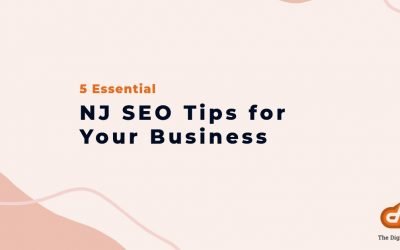To keep your brand competitive and relevant, you have to be in tune with the latest marketing trends. There is an ongoing change in technology and consumer habits. Thus digital marketing has become one of the most reliable and efficient ways of reaching customers.
Digital marketing is a component of marketing that utilizes online-based digital technologies. It includes computers, mobile phones, and other digital media and platforms to promote products as well as services. Search engine optimization is one of the most efficient and long-term solutions. Companies use SEO to increase their visibility and user traffic. By using specific keywords in the website content and increasing the number of quality backlinks to a webpage. (also known as link building), the authority of your domain also goes up. This means that your website is more likely to appear on the first page of search engine results. And that’s your end goal!
SEO stands for “search engine optimization.” It is the practice of increasing both the quality and quantity of website traffic. As well as exposure to your brand, through non-paid (also known as “organic”) search engine results.
SEO is the core of digital marketing. Here I have tried to explain this concept in brief:
Search Engine Optimization (SEO) is the process of improving the visibility of a website or web page in various search engines. It involves various techniques to generate more traffic on your website. And improve its ranking through paid and unpaid digital marketing (organic) techniques.
How actually will the websites get optimized? It depends on whether it is Off-Page or On-Page.
What is On-Page and Off-Page SEO?
Many digital marketers and website owners are doing On-Page, Off-Page, and Technical SEO these days to rule over the internet. These can use any of the SEO types we have discussed above – white, black, and/or gray hat search engine optimization techniques.
- On-Page:
It refers to the activities used to optimize single or many pages of a site to improve its visibility on the SERPs. On-page includes optimizing web page content as well as its technical aspects. On-page SEO includes such as page titles, Meta tags, Meta descriptions, body tags, URL structure, image SEO, keyword density, internal linking, external links, headings, content formatting, and mobile-friendliness. It boosts your SEO.
On-page search engine optimization is the best factor for achieving high local results. And gaining long-term SEO value with no heavy investment of time and money. Techniques used for on-page optimization such as Meta title and description results in improved CTR (click-through rate) and better user experience. Thereby, providing you an upper-hand while locking horns with your strong rivals.
- Off-Page:
It is quite the opposite of on-page SEO as the name suggests. It refers to activities that we perform off a site to gain higher search engine ranking. This type of SEO helps strengthen the connectivity and influence of your site. It means connecting with other websites to create a trustworthy reputation and authority. Besides professional off-page SEO benefits in many more ways including increased SERP ranking, improved Page Rank, and more website exposure.
Top off-page SEO techniques include social networking sites, forum marketing, blogging, social bookmarking, search engine submission, directory submission, video marketing, business reviews, article submission, and answer questions.
- Technical:
SEO has changed a lot over the last decade with the succession of algorithmic evolutions. It requires innovative skills and advanced approaches to succeed in the competitive world. Among all the updates, one thing that remains completely unchanged is technical SEO. It is the foundation of all other strategies. It is not an option, but a necessity that looks at the relevant technical features of a site and server configuration.
Technical SEO includes strategies that focus on improving the foundation and backend structure of a site to improve its readability and UX (user experience). It relates to indexing, site speed, structured data, mobile-friendliness, security, crawl ability, canonical page references, and site structure. Depending on the present technical health of your site, you can use various technical SEO strategies. The primary techniques, you can begin working on right away includes SSL (Secure Sockets Layer) protection, reduced site load time for mobile and desktop platforms, removal of broken links, removing mixed content issues, and creating an XML sitemap.
Why is SEO important in a digital marketing strategy?
Well to start with what good is a website if there are no viewers to it? what difference a good blog makes if the link gets disappeared in the array of other search results? speaking, if you have a digital shop on the internet, SEO is the banner and display of it. It ensures that searchers have a view of your shop and connect with you.
SEO makes your shop visible and puts it upfront in the search results to get the largest views. And assures proper and needful appearance.
The surveys say that a 75% search market is owned by Google. Making Google a straight-ahead leader in it. But the other 25% market owned by other search engines is important and valuable too. A lot of companies invest in SEO because good SEO always drives better results. Providing better experience to users and thus, trust develops with the website.
A good website needs good SEO input to make it visible and credible in the search results.
How does SEO work?
A search engine is not human but the software that crawls the web page content. So, not like humans, the search engine is text-driven. They complete many activities that bring search results. These activities include crawling, scanning, and storing (or index), course of action. The distinction with an excellence count shows your calculation of design components. And not only the actions of an individual. The examples of some of the elements that we generally use to build up a quality score as follows:
- Website names and URLs
- Page content
- Meta tags
- Characteristics of Link
- Usability and accessibility
- Page design
Conclusion:
We hope this content helps you to learn what is SEO in digital marketing. If you have any questions regarding these articles please comment below. And feel free to contact us at any time.





